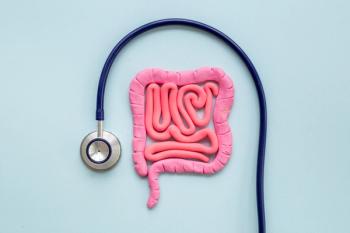
Dry Eye Linked to Poor Sleep Quality
All components of sleep quality were reduced significantly in individuals with dry eye disease.
Patients with dry eye may experience worse quality and quantity of sleep, according to research results published in The Ocular Surface.1
A population-based cohort study in the Netherlands assessed the link between dry eye disease and sleep quality. Between 2006 and 2013, a population of 167,729 patients were selected for the study and followed for 30 years.
This study aimed to assess the strength of the association between dry eye and sleep quality, directly comparing dry eye to other chronic conditions known to reduce quality of sleep. Researchers sought to identify the effect of increasing frequency of dry eye symptoms on the likelihood of having poor sleep quality.
To assess dry eye, patients filled out the Women’s Health Study (WHS) questionnaire during the years 2014 to 2018. Questions included:
- How often do your eyes feel dry?
- How often do your eyes feel irritated?
- Do you have a previous clinical diagnosis of dry eye disease?
To assess sleep quality, all patients in the study completed the Pittsburgh Sleep Quality Index (PSQI) from 2011 to 2015. This index assesses average sleep quality over the previous month, includes 19 questions, and evaluates on a scale of 0-21. A global score of (>5) poor sleepers and (<5) good sleepers was used.1
To assess confounding factors, all patients completed questionnaires from baseline through 2018 about other disorders and diagnoses. There were 118 different variables found for a range of diagnoses, 54 of which were independently linked to dry eye disease. A total of 51 possible confounding comorbidities were examined via logistic regression models to determine the relationship between poor sleep and dry eye.
Of the 71,761 patients studied, 8.9% had dry eye and 1.8% had highly symptomatic dry eye; 8.4% had a past clinical diagnosis of dry eye disease. Overall, 1 in 4—or 25.9%—of participants had poor sleep quality. In patients with dry eye, poor sleep quality was much more prevalent than in controls (36.4% vs 24.8%, corrected for age and sex only). Nearly 1 in 2 (44.9%) of those with highly symptomatic dry eye had poor sleep quality. Patients with poor sleep quality were 50% more likely to have dry eye disease compared with those without poor sleep quality. Poor sleep increased the risk of having highly symptomatic dry eye.
This study has several limitations. This study does not guarantee a link determined by causation, as confounding factors may have been missed and patients were not studied over time. Further, adjustments may result in over-correction and researchers cannot separate the connections between sleep quality, comorbidities, and dry eye. Finally, poor sleep quality can lead to several of the comorbidities described, opposed to resulting from them.
“Dry eye is associated with worse outcomes in all quantitative and qualitative aspects of sleep, and this relationship is present in all ages and sexes, the researchers concluded. “Further prospective studies are needed to determine the directionality of this association and whether sleep hygiene interventions could alleviate dry eye.”
Reference
- Magno MS, Utheim TP, Snieder H, Hammond CJ, Vehof J. The relationship between dry eye and sleep quality. The Ocul Surf. 2021;20:13-19. doi:10.1016/j.jtos.2020.12.009
Newsletter
Pharmacy practice is always changing. Stay ahead of the curve with the Drug Topics newsletter and get the latest drug information, industry trends, and patient care tips.























